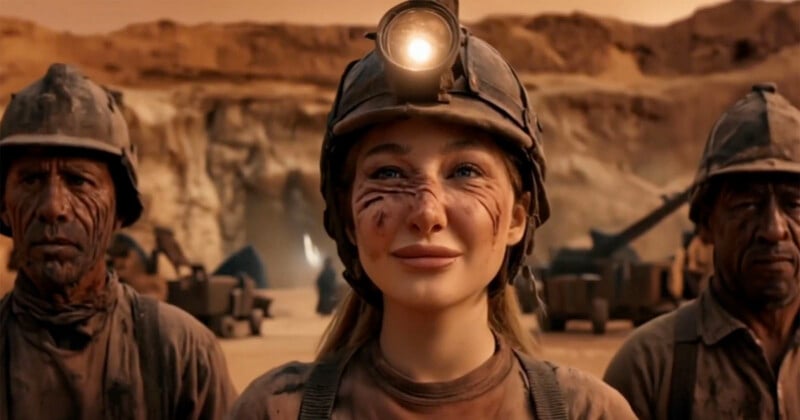After AI Actress Tilly Norwood, Now There is an AI-Generated Movie Director

Despite reports of Hollywood agents circling an AI-generated actress by the name of Tilly Norwood horrifying many people, now a respected film producer has announced a feature he says is “the first film directed by a virtual director.”
Italian producer Andrea Iervolino, known for films such as Ferrari and To the Bone, has announced The Sweet Idleness. The project comes at a time when the entertainment industry is actively debating the role of artificial intelligence in filmmaking and performance.
The film is directed by “FellinAI,” an AI system created to “celebrate the poetic and dreamlike language of great European cinema.” FellinAI operates within the Andrea Iervolino Company AI division, with Iervolino serving as the “human-in-the-loop” — a supervisor who guides and monitors the technology to ensure creative consistency.
According to a synopsis, The Sweet Idleness imagines “a tomorrow in which only 1% of humanity still works, transforming labor into a symbolic ritual, while the rest of the population lives in the freedom and leisure provided by machines.” The film’s world features “cathedral-factories, mechanical clowns, and surreal processions,” portraying the “last workers” as “the final masks of a humanity that resists the insolence of labor.”
The cast will come from Actor+, an internal agency of The Andrea Iervolino Company that collaborates with real performers to generate digital likenesses. These “digital actors” are designed to have a presence both on-screen and beyond. The company describes this concept as “Digital Human’s Existency — the ‘social and narrative existence’ of the digital actor in the real and online world.”
Andrea Biglione, director of Italian films such as Almeno tu nell’universo and Drony, developed the FellinAI system and serves as an additional “Human-in-the-Loop,” described as “a bridge between algorithmic intuition and human artistic sensitivity.”
“For the first time, the traditional roles of the film industry are being redefined,” Iervolino says in a statement per Variety. “With The Sweet Idleness we celebrate the beginning of a new chapter in the history of cinema. Our vision is simple and at the same time revolutionary: to unite human sensitivity with the creative power of artificial intelligence in order to tell stories that no one has ever imagined before. FellinAI is a director who never sleeps, while Actor+ is a company of actors who live beyond the screen. It is the future, but also a return to the original poetry of cinema.”
He emphasizes that the project “is not intended to replace traditional cinema. Rather, it is an alternative method of creation.”

The announcement follows controversy surrounding Tilly Norwood, an AI-generated actress created by technologist and performer Eline Van der Velden. News that Norwood was being considered for representation by talent agencies sparked significant backlash from within the acting community.
“SAG-AFTRA believes creativity is, and should remain, human-centered. The union is opposed to the replacement of human performers by synthetics,” the guild said in a statement. “To be clear, ‘Tilly Norwood’ is not an actor, it’s a character generated by a computer program that was trained on the work of countless professional performers — without permission or compensation. It has no life experience to draw from, no emotion and, from what we’ve seen, audiences aren’t interested in watching computer-generated content untethered from the human experience.”
Actors Emily Blunt and Whoopi Goldberg also criticized the development. Blunt called it “terrifying,” urging agencies to “stop taking away our human connection.” Goldberg remarked, “You are suddenly up against something that’s been generated with 5,000 other actors… so it’s a little bit of an unfair advantage.”
With many outraged over AI players, the litmus test will be whether audiences actually like the synthetic output. Part of watching a movie is temporarily suspending the viewer’s disbelief, and it is difficult to see how an AI-generated performer can do that.